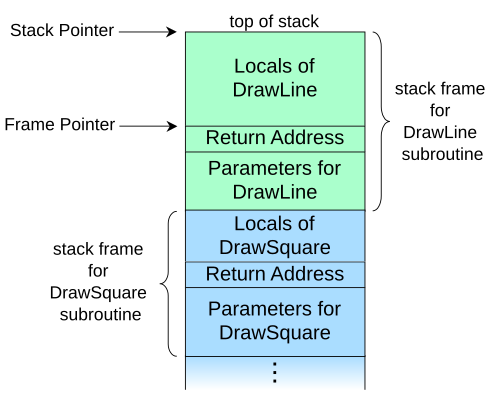It is important to remember that you allocate enough memory plus one for the nul terminating character (Astute readers will point out this nul, that is primarily there for a reason - a nul with one l is � [Thanks Software Monkey for pointing out an error!], a null with two l is a pointer pointing to nothing).
Here s an example of how a seg fault can occur
int main(int argc, char **argv){
int *x = NULL;
*x = 5;
// boom
}
Since x is a pointer and set to null, we attempt to dereference the pointer and assigning a value to it. A guaranteed way of generating a segmentation fault.
There is an old trick available in that you can actually trap the seg fault and get a stack trace, more common on unix environment, by setting up a signal handler to trap a SIGSEGV, and within your signal handler invoke a process like this:
char buf[250];
buf[0] = � ;
sprintf(buf, "gdb -a %d | where > mysegfault.txt", getpid());
system(buf);
This attaches the currently executing C program and shells out to the debugger and attaches itself to it, the where part of it shows the stack trace of the offending line that caused the seg fault and redirects the output to a file in the current directory.
Note: this is implementation defined, depending on the installation, under AIX, the gnu debugger is present and hence this will work, your mileage may vary.
Hope this helps,
Best regards,
Tom.

